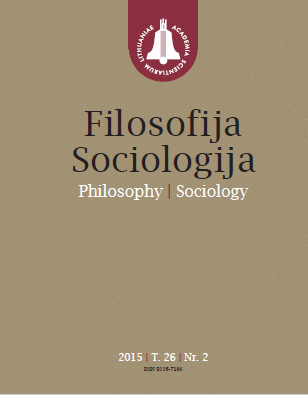Judėjimo negalią turinčių paauglių socializacijos patirtys reabilitacinėje įstaigoje
Socialization experiences of adolescents with motor disability in a rehabilitation institution
Author(s): Arvydas Virgilijus Matulionis, Jurgita SubačiūtėSubject(s): Social Sciences, Psychology, Sociology, Educational Psychology, Social psychology and group interaction, Substance abuse and addiction, Health and medicine and law, Penology, Sociology of the arts, business, education, Social Norms / Social Control
Published by: Lietuvos mokslų akademijos leidykla
Keywords: adolescence; agent; field; habitus; socialization
Summary/Abstract: This article analyzes the socialization experience of 12–18 year teenagers with movement disabilities at a treatment and rehabilitation centre and is based on the capital theory by sociologist P. Bourdieu and the concepts of field and habitus. The research has shown that the teens with impaired movement who came to a rehabilitation or medical institution rather painfully feel the temporary separation from parents and “forced” exclusion from their usual social life. An economic capital difference between teenagers living in families and habitants of institutional care is striking. The latter try to hide the fact that they are children from a caring home. Romantic relationships at a treatment and rehabilitation facility plays a very important role to the reconstruction of cracked habitus movement of a disabled teenager and the formation of his/her self confidence. The first doctor and patient’s meeting is the decisive factor in further communication of these two social agents.
Journal: Filosofija. Sociologija
- Issue Year: 2015
- Issue No: 2
- Page Range: 164-173
- Page Count: 10
- Language: Lithuanian

